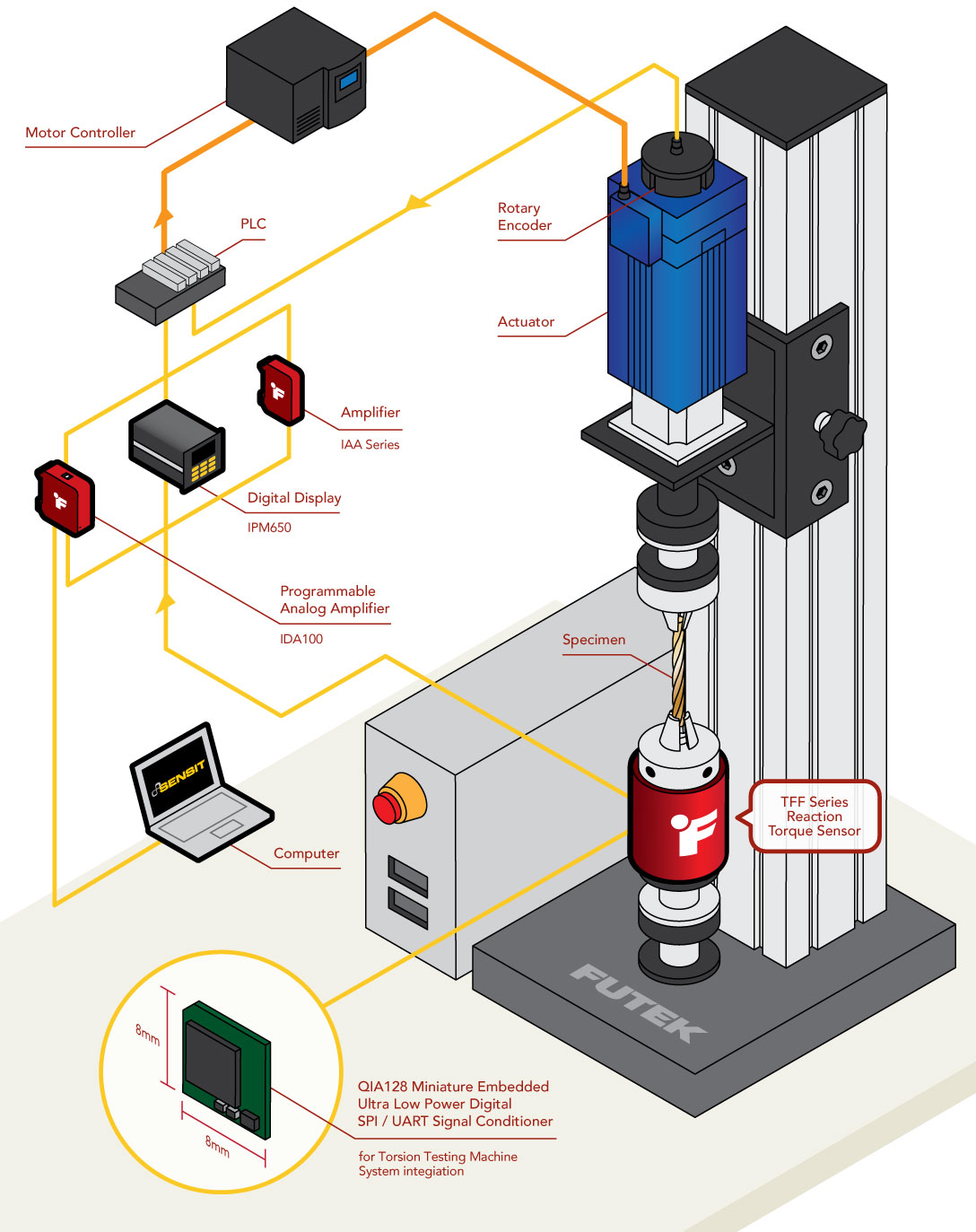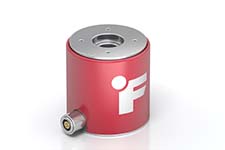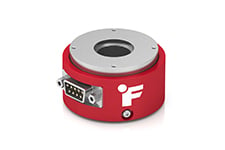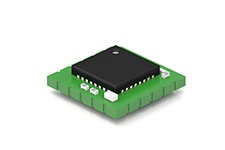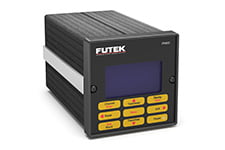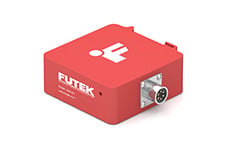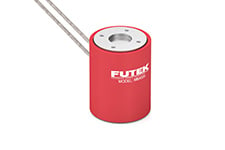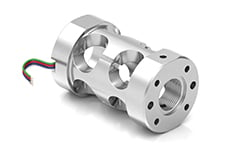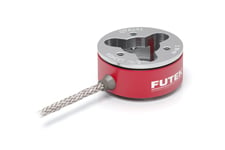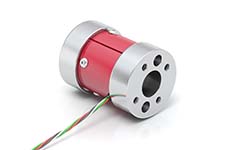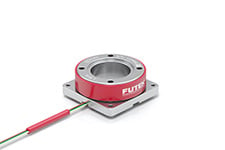What is torsion testing?
According to the Encyclopedia of Biomedical Engineering, torsion testing is a mechanical testing that involves the twisting of a sample material along its axis. It is an important test for collecting data regarding torsional shear stress, maximum torque, shear modulus, and breaking angle of a material or the interface between two materials. Normally, a sample is mounted in a torsion tester and one end of the sample is twisted around the long axis until failure, during which the rotational torque and the angular displacement are monitored.
How does Torsion Testing Machine work?
Torsion testing machines measure the torsional strength, stiffness, and stress-strain properties of materials and products. Torsional Test Systems are used to simulate real-life conditions and to check axial torsion properties through axial torque test of material specimens.
An automated torque testing machine provides torsion test capabilities in both clockwise and counterclockwise directions, enabling the determination of not only the ultimate torsional strength but also how the specimen behaves under torque loading in both rotation directions. Torsion tester is an essential equipment to measure axial torsion properties of materials for mechanical and quality laboratories.
Common Torsion Test Applications
- Wire, Metals, Tools
- Plastics, composite materials
- Screws, Fasteners, Rods, shafts
- Torsion Springs
- Biomedical Products
- Automotive Components
- Aerospace Components
- Calibration of torque sensors
Industry Torsion Test Standards
- ASTM D7860-14 Torque Retention for Child Resistant Packaging;
- ASTM F543 Metallic Medical Bone Screws;
- ASTM A938 Torsion Testing of Wire;
- ASTM F1717 Spinal Implant Constructs;
- ASTM F2346 Characterization and Fatigue Testing of Spinal Intervertebral Disc Prostheses;
- ISO 7800:2012 - Metallic materials — Wire — Simple torsion test;
- ISO 9649:2016 - Wire — Reverse torsion test;
- IEC 888 Zinc Coated Steel Wires;
- ISO 7800 Torsion Testing Wire.
Why does proper torque sensor selection matter to your torsion test application?
The torque sensor is the heart of torque testing machines. It is the component that senses the torsional strength underwent by the device under test (DUT).
FUTEK’s TFF400 Reaction Torque Sensors have the following features:
- Flange to flange mounting solution
- Measurements ranging from +/- 5 inch-oz to 500 inch-pounds, (+/-0.04 to 60 Nm)
- Torsional Stiffness of 325 inch-oz/radians to 199,000 Inch pounds/radians.
- Metal Foil Strain Gage technology
- Overload Protection up to 300% of Rated Output for ranges 5 to 1000 in-oz and 150% of RO for ranges between 100 in-lb to 500 in-lb
- Mounting Plate offers flexible mounting options.
- Made from anodized Aluminum for optimum durability
- Low profile: 1.25” (31.7 mm) height
In case the measurement of torque and pull / pulling forces in the vertical direction is necessary, the MBA500 Torque and Thrust Bi-Axial Load Cell is designed to measure reaction torque moments as well as tension and compression loads.
Additional TFF400 Features
- Easily integrates into OEM applications
- Both rotational directions: CW and CCW
- Designed for Torque auditing
- Aluminum construction
- Built-in overload protection on lower ranges
- Strain gauge based torque-sensing device
- Easy cable disconnect
FUTEK QIA128 embedded digital signal conditioner
FUTEK QIA128 digital embedded signal conditioner is a miniature ultra low power digital signal conditioner with SPI output. Its miniature board of only 8 mm x 8 mm features a selectable sampling rate from 4 SPS to 1300 SPS to achieve from 11.4 up to 14.2 noise-free resolution (NFR) depending on requirements.
How it Works
A reaction torque sensor is mounted in the bottom fixturing of the torsional test system. The lower jaw holds the specimen while the upper jaw rotates, driven by the actuator.
The torque sensor measures specimen axial torsion in both clockwise and counterclockwise directions.
The motor is controlled by a motor controller integrated with the PLC. An encoder measures the angular movement for angular position feedback.
The torsion signal can be amplified through FUTEK's IAA Series Amplifier to a PLC, shown on a digital display (IPM650 or SensLog Handheld Display), or streamed directly to a PC using FUTEK's USB Solutions.
If the instrument is paired with FUTEK's SENSIT™ Test and Measurement Software operators can log, graph and capture all the data on a PC.
A QIA128 is a miniature ultra low power digital signal conditioner with SPI output and can be used for torque testing system integration.
Products in Use
- TFF325/TFF350 Reaction Torque Sensors can be used as an OEM version, integrated with SPI QIA128 Low Power Digital Signal Conditioner for embedded solution.
- QTA141/QTA143 are low-profile miniature reaction torque sensors solutions. Due to their super low profile with only 10 mm height, these sensors do not stack up in the existing assembly construction and do not add unnecessary height to the test stand.
Contact Us
Please Contact Us with questions.
What is torsion testing?
According to the Encyclopedia of Biomedical Engineering, torsion testing is a mechanical testing that involves the twisting of a sample material along its axis. It is an important test for collecting data regarding torsional shear stress, maximum torque, shear modulus, and breaking angle of a material or the interface between two materials. Normally, a sample is mounted in a torsion tester and one end of the sample is twisted around the long axis until failure, during which the rotational torque and the angular displacement are monitored.
How does Torsion Testing Machine work?
Torsion testing machines measure the torsional strength, stiffness, and stress-strain properties of materials and products. Torsional Test Systems are used to simulate real-life conditions and to check axial torsion properties through axial torque test of material specimens.
An automated torque testing machine provides torsion test capabilities in both clockwise and counterclockwise directions, enabling the determination of not only the ultimate torsional strength but also how the specimen behaves under torque loading in both rotation directions. Torsion tester is an essential equipment to measure axial torsion properties of materials for mechanical and quality laboratories.
Common Torsion Test Applications
- Wire, Metals, Tools
- Plastics, composite materials
- Screws, Fasteners, Rods, shafts
- Torsion Springs
- Biomedical Products
- Automotive Components
- Aerospace Components
- Calibration of torque sensors
Industry Torsion Test Standards
- ASTM D7860-14 Torque Retention for Child Resistant Packaging;
- ASTM F543 Metallic Medical Bone Screws;
- ASTM A938 Torsion Testing of Wire;
- ASTM F1717 Spinal Implant Constructs;
- ASTM F2346 Characterization and Fatigue Testing of Spinal Intervertebral Disc Prostheses;
- ISO 7800:2012 - Metallic materials — Wire — Simple torsion test;
- ISO 9649:2016 - Wire — Reverse torsion test;
- IEC 888 Zinc Coated Steel Wires;
- ISO 7800 Torsion Testing Wire.
Why does proper torque sensor selection matter to your torsion test application?
The torque sensor is the heart of torque testing machines. It is the component that senses the torsional strength underwent by the device under test (DUT).
FUTEK’s TFF400 Reaction Torque Sensors have the following features:
- Flange to flange mounting solution
- Measurements ranging from +/- 5 inch-oz to 500 inch-pounds, (+/-0.04 to 60 Nm)
- Torsional Stiffness of 325 inch-oz/radians to 199,000 Inch pounds/radians.
- Metal Foil Strain Gage technology
- Overload Protection up to 300% of Rated Output for ranges 5 to 1000 in-oz and 150% of RO for ranges between 100 in-lb to 500 in-lb
- Mounting Plate offers flexible mounting options.
- Made from anodized Aluminum for optimum durability
- Low profile: 1.25” (31.7 mm) height
In case the measurement of torque and pull / pulling forces in the vertical direction is necessary, the MBA500 Torque and Thrust Bi-Axial Load Cell is designed to measure reaction torque moments as well as tension and compression loads.
Additional TFF400 Features
- Easily integrates into OEM applications
- Both rotational directions: CW and CCW
- Designed for Torque auditing
- Aluminum construction
- Built-in overload protection on lower ranges
- Strain gauge based torque-sensing device
- Easy cable disconnect
FUTEK QIA128 embedded digital signal conditioner
FUTEK QIA128 digital embedded signal conditioner is a miniature ultra low power digital signal conditioner with SPI output. Its miniature board of only 8 mm x 8 mm features a selectable sampling rate from 4 SPS to 1300 SPS to achieve from 11.4 up to 14.2 noise-free resolution (NFR) depending on requirements.
